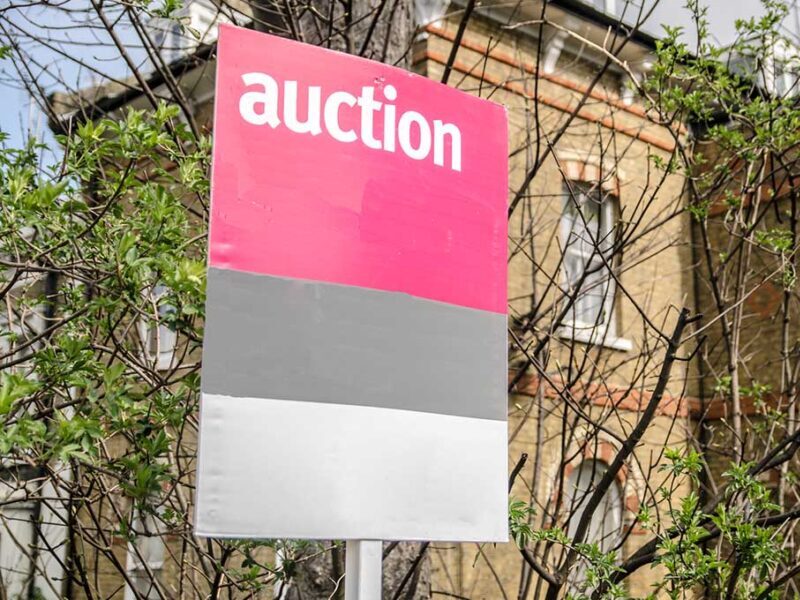When considering property acquisition or development, securing the right financing is crucial to achieving your goals.
Bridging and development loans offer distinct advantages, yet the ideal choice depends on your specific needs and circumstances. Whether you’re tackling a new build, a renovation, or simply need short-term funding to bridge a financial gap, the right loan can make all the difference. Our team of experts is here to guide you through the complexities of these options, ensuring you find the perfect solution tailored to your project’s unique requirements. Let us help you navigate the financial landscape with confidence and clarity.

How it works
How it works
Bridging finance
A short-term loan secured against any type of property or land on an interest-only basis.
The term of a Bridging Loan is from as little as one month through to a maximum of 12-months, if regulated, or indefinitely, if non-regulated lending. Bridging finance is available to an individual or a limited company.
Bridging loans are faster to arrange than a mortgage or other types of secured loan.
Interest and the lenders arrangement fees are typically rolled into the capital advance, therefore there are no monthly mortgage payments to be met.
Consequently, Bridging finance is not underwritten on affordably, instead, lenders are looking for a clear exit strategy, which will allow the funding to be redeemed, within the short-term period of the loan, such as selling a house, of remortgaging the property.
Development finance
Embarking on a property development journey can be a rewarding way to advance on the property ladder or generate income. However, the cost of real estate development in the UK can be challenging without ready cash. Development finance offers a bespoke solution, providing loans to purchase land and cover building costs, so your ambitions aren’t limited by finances. Discover a tailored development loan and start realising your building dreams.
Understanding Development Finance
Development finance covers costs for residential or commercial projects. Unlike long-term mortgages, these are short-term loans, typically six to 36 months, ideal for land purchase and construction expenses for new builds, conversions, or refurbishments.
How Development Finance Works
Distinct from traditional mortgages, development finance supports new builds or property transformations, with loans based on development costs and projected property value. Key factors include loan-to-cost (LTC), loan-to-gross development value (LTGDV), and borrower experience. Interest is added to the loan balance, easing cash flow during construction, and paid upon sale or refinancing.
Types of Development Finance
Development finance is bespoke, tailored to various needs like residential, commercial, renovations, and both single and multi-unit developments. Options such as development exit funding and mezzanine finance add flexibility. Our expert team is ready to guide you through the financing process.
With over 15 years’ experience in the commercial lending sector, our commercial team can make a real difference. We are proud to be member of the NACFB, the professional association for commercial finance brokers and lenders, giving you confidence in our high industry and regulatory standards.”
The Process Explained
The journey to securing development finance involves several stages:
- Initial enquiry and free advice, leading to a formal application.
- Receiving an agreement in principle from the lender.
- Lender’s due diligence, possibly including site visits.
- Formal loan offer, leading to contract exchange and fund drawdown.
- Further drawdowns as the build progresses, with repayment usually upon sale or refinancing.
We simplify the documentation process, enhancing your chances for successful funding. Essential documents include planning permissions, project cost breakdowns, and exit strategies.
With over 15 years’ experience in the commercial lending sector, our commercial team can make a real difference. We are proud to be member of the NACFB, the professional association for commercial finance brokers and lenders, giving you confidence in our high industry and regulatory standards.”

Ready to speak to a Mortgage Advisor?
Our team provides expert, unbiased mortgage advice. Get in touch today to start your journey.
Some forms of Bridging Loans mortgages are not regulated by the Financial Conduct Authority.
Frequently asked questions
Frequently asked questions
Bridging
A typical Bridging Loan will complete, on average, in five to eight working days. Having access to finance in this timeframe can be particularly useful to property developers looking to complete on property quickly.
Bridging Loans are popular with people purchasing property at auction, as they must complete within 28 days. The ability to get Bridging quickly is a perfect solution for clients who are unable to complete using traditional finance in the stipulated timeframe.
If you want to purchase a new property, but are yet to sell your existing residence, a Bridging Loan enables you to secure the new property before you have sold. The Bridging Loan can be secured against the new property being purchased or any other properties owned by the borrower. Consequently, 100% borrowing is available if needed.
Traditional lenders, especially buy-to-let lenders, generally won’t lend against a property, if there is no kitchen or bathroom or central heating, running water, etc, (if it’s considered uninhabitable). A Bridging Lender, by contrast, will base it’s lending on the property’s value in its current condition and therefore allow ownership to make the property habitable. Once complete, the property can either be sold or a buy-to-let mortgage can be secured to redeem the Bridging Finance.
Property Investors may wish to renovate a property in a few months and subsequently sell or re-finance; this can include complex structural changes to a property or light refurbishments. Part-complete projects can also be purchased with bridging finance. In summary, a ‘bridge’ can often be the perfect vehicle for this short-term capital requirement.
Bridging against land or property in order to obtain planning and secure development funding, or sell on with the uplift in value.
Where a property has a short lease and cannot be financed conventionally, Bridging can be used to extend the lease, making the property mortgageable through more conventional sources.
Development Finance
Development loans start from as little as £50,000. Different lenders have various upper limits. Our team of experts can provide you with options up to £50 million.
Fees vary according to each loan and the specific set of circumstances surrounding the deal. Typical fees included in development financing are:
- Lender arrangement fee – a charge from the lender for providing the finance.
- Broker arrangement fee – a charge from the broker who functioned as intermediary between borrower and lender, as well as any other professionals involved in the deal.
- Monitoring surveyor fees, (sometimes called Quantity Surveyor Fees, or QS) – costs to maintain professional surveyor oversight of the development to ensure it complies with building regulations and deal covenants during the term of the loan.
- Exit fees – a charge applied when the loan is paid off.
- Legal fees – lawyer costs and fees.
- Non-utilisation of fees – interest is usually charged only on the sum of money drawn from the loan pool. Some lenders may additionally charge a non-utilisation fee to compensate them for funds they have made available to the lender, but which are left unused and not earning interest.
- Management/admin fees – office costs and fees to manage the loan.
Development finance is short-term, typically repaid within 9–36 months. Unlike a homeowner mortgage, which can last over 35 years, development finance takes into account the value of the completed property
The amount a developer can borrow depends on several factors, including the gross development value (GDV), projected build costs, equity contribution, and day one land leverage.
Lenders monitor the project’s progress to ensure developers adhere to the timeline and goals.
GDV is Gross Development Value and it is the valuation metric used in property development, which allows developers to estimate the worth of the real estate on completion.
Once the build is complete, don’t forget that doesn’t have to be the end of the journey with us. If you are retaining the development, we offer a series of finance solutions to support you through the next stages.
Buy-to-Let Mortgages
Award-winning property finance to help you purchase a new investment, refinance an existing portfolio, or raise additional funds to grow your property business.
Explore buy-to-let mortgages by contating our specilist team.
Commercial Mortgages
Commercial property finance can be complex, but our specialist team, well-versed in UK finance loans, can help you invest in a new property, refinance your existing portfolio, or raise additional funds for further investment opportunities.
The commercial and bridging mortgage market can be complex and confusing – that’s why we’re here!
Some of our Google Reviews
Jason Benn
Couldn’t recommend them more.
I cannot recommend them any more highly.
We will definitely be using his services again in the future!
I would highly reccomend Frog Financial to anybody about to embark on the complicated process of house buying and the necessary insurances!
We would highly recommend them. Their service and communication was superb!
Paula and Mark
The communication from them all was absolutely outstanding and we were never left in the dark about anything. Myself and my partner particularly liked the use of the Business WhatsApp feature for communication making it accessible all the time for us.
Any questions/queries were never a problem for all at frog. The service was fantastic even when people went on A/L the service remained the same.
For the fee for the service you get I would not hesitate using them again and recommending them to anyone I know.
Great work all
Thanks for getting us our first home
Daniel
The service felt personal, thorough and genuinely supportive. We ended up with a great deal and a smooth process from start to finish.
Would recommend Frog to anyone looking for a proper, reliable mortgage advisor.
I would highly recommend this firm to anyone one of my friends and family.
You can rely on them to do a good job for you and I would highly recommend.
Even though our situation changed and we didn’t end up moving forward with the loan, we are grateful for all the help received. Their professional and supportive approach made a difficult situation easier to navigate. We would highly recommend Frog Financial to anyone seeking sound financial advice.
Ruth was also fantastic at following things up for us and keeping us informed of how applications were progressing.
Would definitely recommend Frog to anyone looking for a mortgage or insurance.
Estoy muy agradecido con Danni por su invaluable ayuda, ha sido una gran experiencia.
As FTB, it is a daunting process, with a lot of questions from us on the hows, whens, and whats. Greg made this less so, answering all questions clearly, and helping us to understand things. Not only this, Frog helped us to find the best rate available to us.
Lastly, Greg & Danni helped us to understand which personal insurance policies were best for us, taking the time to explain in layman's terms how each one could benefit us (or not), depending on our needs.
All in all, Greg & Danni have been a valuable part of our mortgage journey, and I would not hesitate to work with them again in the future.
Greg was extremely knowledgable and made a daunting process significantly easier - he was friendly, extremely clear and answered any questions or concerns we had throughout the entire process.
Greg really listened to our circumstances and it was clear he wanted an outcome for us that fit our needs, there was never any sense of trying to upsell or push us towards something that did not fit our needs and we reached an outcome we were extremely happy with.
Greg’s approach was extremely fair and it was clear that Frog Financial is far more interested in building a lasting relationship ship with their clients. I would not hesitate to approach Greg and Frog Financial again and will absolutely be using their services again when we come to our next application!
Would highly recommend to anyone looking for trustworthy and efficient financial advice.
The whole experience has been fantastic, professional, efficient, and stress-free. The member portal is another great addition, making everything even more accessible and straightforward.
I was so impressed that I even told my solicitor to recommend Charley to her clients. If you’re looking for someone who truly goes above and beyond, Charley is the one to trust. 100% recommend!
They have helped us to buy our first home and they were a huge helping hand when we had no idea where to start.
Thank you so much for making the house buying process almost completely stress free.
Contact us for your fee free mortgage consultation
We offer you initial no obligation consultations. Frog Financial Management will bear the cost of this, where we will: Describe our services more fully and explain the payment options. Gather and analyse personal financial information about you and your aims and objectives. Recommend and discuss any action we think you should take.
Refund of fees
All fees are fully refundable should we be unable to achieve a Lenders Mortgage Offer (as applied for), except in the following circumstances:
Client not proceeding due to own choice. | Client not proceeding due to valuation issues. | Client not proceeding due to property chain issues. | Client non-disclosure of material facts.
Example of fees
for residential mortgages
We typically charge £527,
payable on application.
Standard residential mortgage – £527
Shared ownership and Right to Buy – £674
Product switch – £137
Complex/impaired credit history – £797
Example of fees
for buy-to-let mortgages
We typically charge £557,
payable on application.
Standard Buy-To-Let mortgage – £557
Limited company Buy-To-Let mortgage – £677
HMO Properties/Portfolio landlords*- £779
Product switch – £137
Complex/impaired credit history and non-standard properties – £979
*A ‘Portfolio Landlord’ is defined as client(s) having four or more buy-to-let properties (mortgaged or mortgage free), on completion of this mortgage transaction.
Example of fees for
Bridging, Development
and Commercial mortgages
We typically charge £787,
payable on application.
Business Finance – £987
Development Loan – £987
Commercial Mortgage – £787
Bridging Loan – £787
Example of fees
Lifetime mortgages
We typically charge £1,147,
payable on completion.





